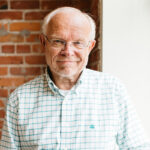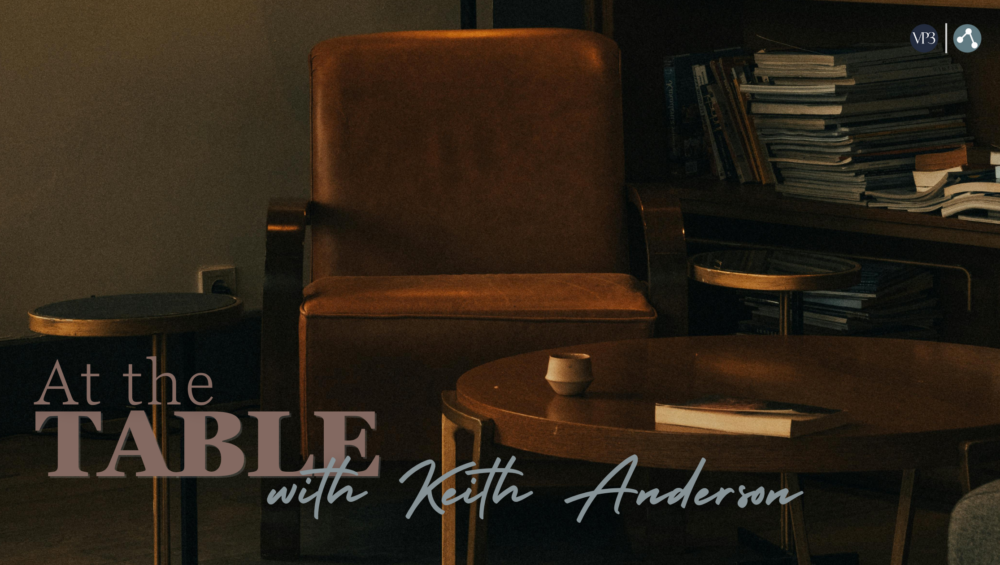Three Old Friends, Weathered by Time
Three old friends. Once college roommates. Now, silver-haired sages with weathered faces and tender hearts. We gathered with spouses on a Zoom call, decades of life behind us, some days heavy with loss. Yet even in the ache of aging and memory, there was a quiet sense that we are still living under the blessing. What do old friends talk about?
We reminisce about life “back in the day”
- “I remember trying so hard to stay awake for Western Civilization at 7:30 in the morning.”
- “I remember when BP bought a 1954 Nash limo.”
- “Do you remember when your waders filled with the icy cold waters of Lake Superior while we were ‘smelting’ and Larry and I had to tip you upside down to dry you out?”

We laughed with memories, stories, and events sometimes sealed from public ears:
- “I bet Larry is still driving that old ugly orange Mustang in heaven…”
- “We had such times when you worked at the funeral home where we met together for conversation, even in such an unusual setting.”
- “Did you go on that triple date with the nursing students?
- “Do you remember when you were in a water balloon fight and drenched the dean of women by the women’s dorm?”
We used to speak in the casual banter of youth—jokes about awkward dates, sledding on trays in the park, and that night when one of the fathers let us know our hair was too long.
Life Hurts—and We’re Still Here
But now, other words rise to the surface. Words like Cancer. Suicide. Estrangement. Heartbreak.
Once, on the third floor of Edgren dorm, we might have buried those words beneath laughter or silence. But not anymore. We’ve grown more honest with time—more human.
We spoke aloud to each other the truth we all carry: Life hurts.
We know betrayal, trauma, and illness. We’ve walked through the fog of grief and sat beside sorrow like an old companion. The temptation, in the thick of pain, is to believe we are broken beyond repair, that something is not only wrong in our lives, but wrong in us. Shame whispers that we are cursed, forgotten by God.
The Gospel’s Bold Response to Suffering
But that is not biblical truth.
Scripture dares to tell us otherwise: Even here—especially here—we are invited to live under the blessing.
Stay with me. This may sound foolish at first. But stay.
Pain entered the story in Eden, a wound in the heart of the world. Genesis 3 speaks of thorns and sweat, of longing and loss. The curse touches everything. We feel it in our bones. In the ache of isolation. In the silence after the door slams. In the diagnosis. In the harsh memory that won’t let go.
To live under the curse is to interpret suffering as punishment. To hear pain and assume it’s your fault. To sit in the dark and believe God has walked away.
But the gospel tells a different story: Christ has redeemed us from the curse by becoming a curse for us (Galatians 3:13). Jesus didn’t sidestep suffering. He walked into it. He carried it. And in doing so, he transformed it.
The curse does not have the last word, not anymore.
Not Cursed, But Blessed
We are invited to live not under the weight of the curse but beneath the shelter of blessing. This is not denial. This is not saccharine optimism. It is spiritual defiance. It says:
- Even though I hurt, I am not forsaken.
- Even though I grieve, I am still loved.
- Even though I carry trauma or abuse, I am not forgotten.
- This pain is real—but it is not the end of my story.
- We are pressed down, but not destroyed (2 Corinthians 4:8–10).
- Even though we can name our own sin, our failures, and “missing the mark,” there is redemption.
Living Under the Blessing, Even Here
So how do we live under the blessing when pain, shame, or guilt lingers?
- We name the pain—but do not bow to it or give our suffering authority over our emotions, hopes, and relationships.
- We tell the truth about our wounds—but we trust they are not wasted.
- We believe, even in the dark, that grace is still moving toward us.
Romans 8:28 doesn’t promise that everything is good. But it declares that nothing—not one thing—is beyond the reach of God’s redemptive love.
- Not the grave.
- Not the wound.
- Not even what was done to you.
- Not even your own flaws, failures, and finitude.
And so, we root ourselves not in the shifting sands of circumstance, however painful, but in the soil of God’s presence. We choose to trust that we are held. We move forward—not because we’re strong—but because we are not alone.
Two Practices
Meditate on these scriptures.
- Deuteronomy 30:19–20 — Choose life, even in sorrow.
- Galatians 3:13–14 — Christ bore the curse for us.
- Matthew 5:1–12 — Blessed are those who mourn.
- Jeremiah 17:5–8 — Trust in the Lord.
If you are able, pray this each day this week:
“Lord, I don’t understand all that is painful in life right now, but I trust You.
I trust You are present—even when I cannot feel You.
I trust Your Spirit intercedes when I cannot find the words.I confess my sins to you and seek to replace curse with blessing.
You are my hope when darkness is all I see.
May I live under the blessing, because I know You are for me, with me, and at work in me.”
_______________________________

Keith Anderson, D.Min., is a Faculty Associate for Spirituality and Vocation at VantagePoint3 and President Emeritus of Seattle School of Theology and Psychology. He is the author of several books, including his most recent: On Holy Ground: Your Story of Identity, Belonging and Sacred Purpose (Wipf & Stock, 2024). His other works include Reading Your Life’s Story (IVP, 2016), A Spirituality of Listening (IVP, 2016), and Spiritual Mentoring (IVP, 1999). In his writing, teaching, and mentoring, Keith seeks to set a table for people looking to enter the “amazing inner sanctuary of the soul” in the most ordinary and extraordinary moments of life.


1 Comment
Well said friend. The blessing is multiplied when we share life and its hurts with one another. That renews hope and gives richness to life.
BP